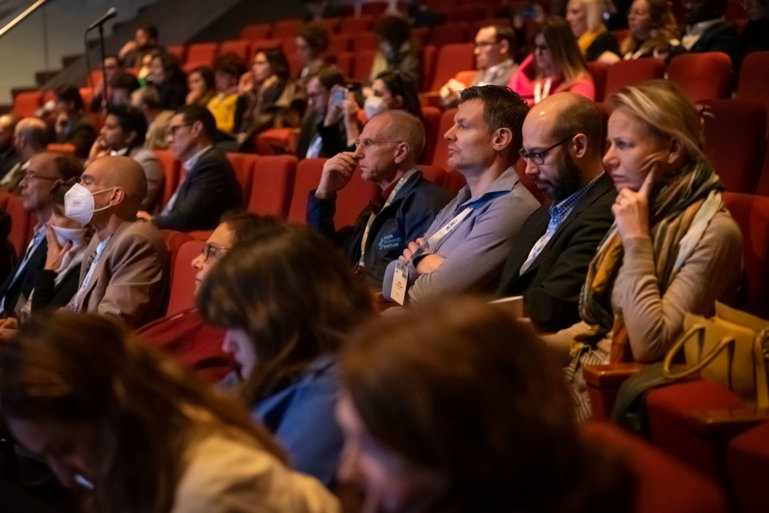New recommendations of the MDICT Taskforce highlight the need to rethink how research studies are conducted and of multi-stakeholder collaboration
From 2015 to 2020 the number of approved anti-cancer medicines entered the European market more than doubled compared to previous decades, with immuno-oncology (IO) and targeted agents representing a consistent group (Cancers (Basel). 2022 Feb; 14(4): 889).
Drug development is proceeding at such a rapid pace - over 6,000 active clinical trials are testing novel immunotherapeutics today – that revisions to how standard oncology phase I studies are designed and conducted are long overdue to maximise benefits while reducing long-term toxicity in patients.
“In recent years, we have witnessed a significant shift within oncology drug development from cytotoxic compounds to the era of molecularly targeted agents and IO. With these agents, the relationship between dose, toxicity and efficacy is not always direct, with a highly variable therapeutic window, based on the immune pathways being activated and the extent of autoimmunity being incited,” explains Alastair Greystoke, The Freeman Hospital (NHS Foundation Trust) Northern Centre for Cancer Care in Newcastle, UK, and member of the Methodology for the Development of Innovative Cancer Therapies (MDICT) Taskforce, which recently developed recommendations to improve dosage selection in early clinical trials and, ultimately, outcomes for patients with cancer (Ann Oncol. 2023 Jan;34(1):48-60).
What is the MDICT Taskforce
Established in 2006 and supported by ESMO, the MDICT Taskforce is composed of experts from academia, nonprofit organizations, industry and regulatory stakeholders, and aims to provide guidance and recommendations on the development of novel anticancer agents. The last paper produced by the taskforce was released after the Food and Drug Administration (FDA) Oncology Center of Excellence launched Project Optimus in 2021 on dose optimisation for anti-cancer agents, which resulted in a draft guidance for industry in January 2023. Meetings of the MDICT Taskforce are hosted by ESMO on a regular basis in occasion of the ESMO Targeted Anticancer Therapies Congress.
Finding the right dose for novel anti-cancer agents stands in stark contrast to a “more is better” paradigm that had been driving oncology for long time, and which still influence the way cancer research is designed and conducted. “The current practice of defining a single maximum tolerated dose/recommended phase II dose based solely on toxicity in phase I dose escalation trials is no longer appropriate,” continues Greystoke. “The major risk of this approach is it may define doses to be used in later research phases that are not the most efficacious nor the best tolerated by the patient.” According to the latest MDICT recommendations discussed in a Mini Oral session at the ESMO Targeted Anticancer Therapies Congress 2023, early clinical trials should define the “recommended dose range” for later testing in confirmatory phase trials, rather than a single recommended phase II dose, with flexible and adaptive protocols.
But how would a change of paradigm impact on the timelines associated with the completion of trials and subsequent drug approval? “Even though early phase trials may become larger and take longer to reach their outcomes, the overall duration of drug development will remain similar or may even become faster since the need to repeat studies to refine dosage is potentially minimized,” says Rodrigo Dienstmann, Oncoclínicas Precision Medicine and Big Data Initiatives, Grupo Oncoclinicas, São Paulo, Brazil. “For most IO agents, the maximum tolerated dose has not been defined and it is likely irrelevant in terms of efficacy. While unnecessary high dosing may increase toxicity for our patients, it also rises costs for conducting trials, with a wider impact on healthcare systems. In some tumor types and disease contexts, or with combination therapies, lower IO doses can maximise benefit and increase the global access to the drugs.”
Implementing 2022 MDICT recommendations will not be possible without a multi-stakeholder acceptance. “Industry, academic investigators and regulatory bodies should join forces, with a more prominent role played by pharmacologists and statisticians guiding adaptive and flexible trial designs with randomized cohorts as recommended,” concludes Dienstmann. “In this evolving scenario, there are some misconceptions in early phase research that are yet to be addressed. For example, we still need to do a better job in bringing the patients’ perspectives in phase I trial execution, with shared decisions about the risks versus value of mandatory invasive procedures such as biopsies, and open discussions about whether early clinical trials represent a valid therapeutic option for cancer patients.”
The work of the MDICT Taskforce is continuing to address some pending issues in the field, with a focus on phase I studies combinations in 2023.
Don’t miss:
Oncology phase I trial design and conduct: Time for a change - MDICT Guidelines 2022. ESMO Targeted Anticancer Therapies Congress 2023
Mini Oral session, 6.03.2023, 11:45 - 12:45, Amphitheatre Bordeaux






